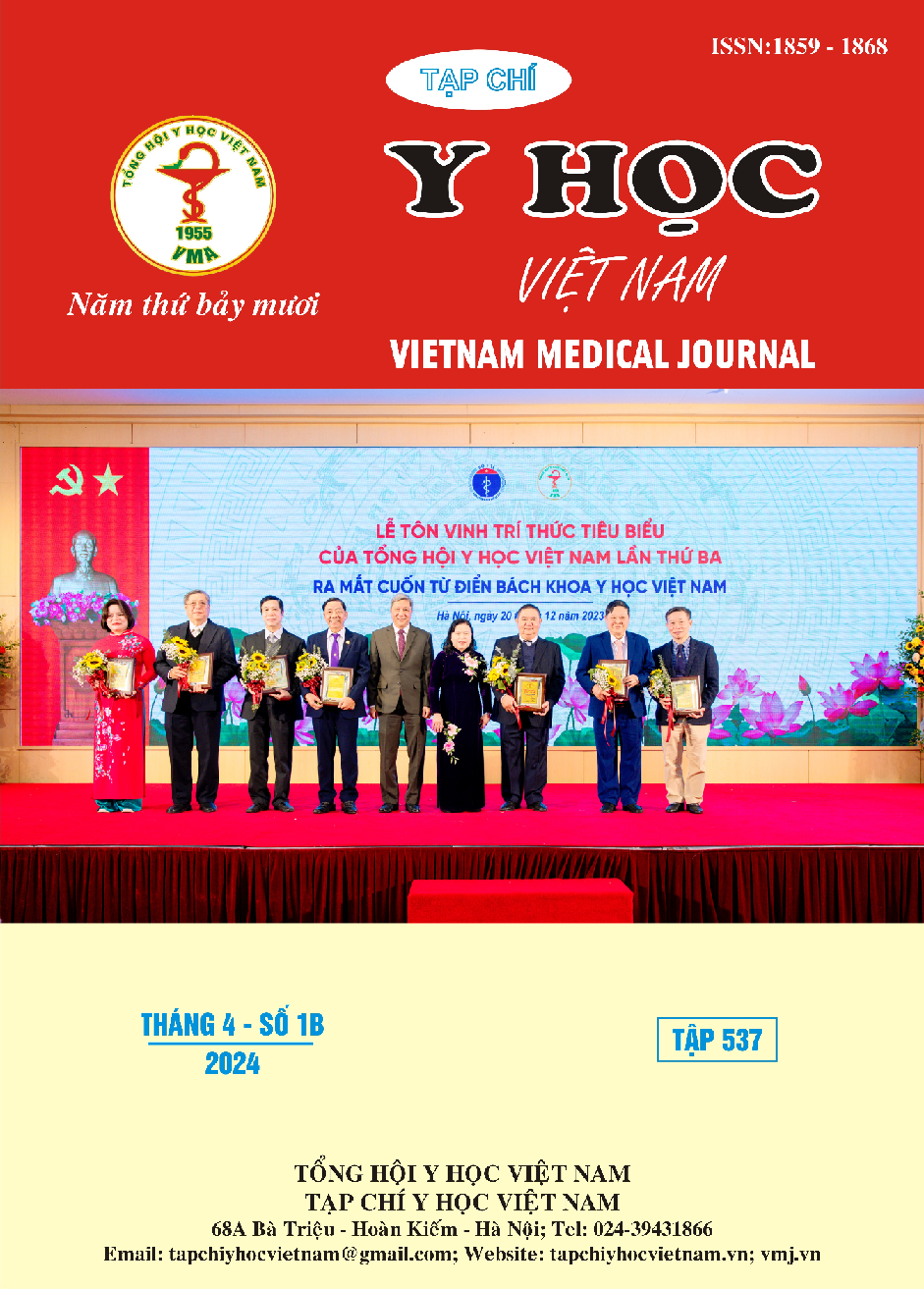CASE REPORT: PATIENT WITH NON-SMALL CELL LUNG CANCER STAGE IV HAS EGFR MUTATION EXON 20 INSERTION A763-Y764insFQEA TREATED WITH FIRST-GENERATION TYROSIN KINASE INHIBITORS
Main Article Content
Abstract
EGFR mutations in non-small cell lung cancer (NSCLC) are common with a rate of 40 - 50%, and the most common activating EGFR mutations are in-frame deletions of exon 19 and point mutations of exon 21 (L858R). NSCLC patients with these mutations respond well to EGFR tyrosine kinase inhibitors (TKI)1. Exon 20 insertions are less common and most patients with EGFR exon 20 insertions mutations do not respond to treatment with TKIs. An exception is the A763-Y764insFQEA mutation that is sensitive to treatment with TKIs, with a high rate of response was 62.5% and overall survival was reported up to 22,0 months2. We present a 47-year-old female patient, admitted to the hospital because of cough and chest pain for about 1 month. Computed tomography scan revealed a large mass in the right upper lobe of the lung with right pleural effusion. The patient was diagnosed with stage IV NSCLC (pleural effusion) with EGFR A763-Y764insFQEA mutation on exon 20. She was treated with a 1st generation TKI drug. Currently, after 6 months of treatment, she showed stable disease, clinical symptoms improved significantly and no serious side effects appeared.
Article Details
Keywords
non small cell lung cancer, EGFR A763-Y764insFQEA.
References
2. Vasconcelos PENS, Gergis C, Viray H, et al. EGFR-A763_Y764insFQEA Is a Unique Exon 20 Insertion Mutation That Displays Sensitivity to Approved and In-Development Lung Cancer EGFR Tyrosine Kinase Inhibitors. JTO Clin Res Rep. 2020;1(3):100051.
3. Park K, Haura EB, Leighl NB, et al. Amivantamab in EGFR Exon 20 Insertion-Mutated Non-Small-Cell Lung Cancer Progressing on Platinum Chemotherapy: Initial Results From the CHRYSALIS Phase I Study. J Clin Oncol Off J Am Soc Clin Oncol. 2021;39(30):3391-3402.
4. NCCN Guidelines Committee. Clinical Practice Guidelines in Oncology: Non-Small Cell Lung Cancer, version 4.2024. https://www.nccn.org /professionals/physician_gls/pdf/nscl.pdf.
5. O’Leary C, Gasper H, Sahin KB, et al. Epidermal Growth Factor Receptor (EGFR)-Mutated Non-Small-Cell Lung Cancer (NSCLC). Pharmaceuticals. 2020;13(10):273.
6. Yasuda H, Park E, Yun CH, et al. Structural, biochemical, and clinical characterization of epidermal growth factor receptor (EGFR) exon 20 insertion mutations in lung cancer. Sci Transl Med. 2013;5(216):216ra177.
7. Yang G, Yang Y, Hu J, Xu H, Zhang S, Wang Y. EGFR exon 20 insertion variants A763_Y764insFQEA and D770delinsGY confer favorable sensitivity to currently approved EGFR-specific tyrosine kinase inhibitors. Front Pharmacol. 2022;13:984503.
8. P T, B V, C G, Jm J, K P, M V. A comparative study on erlotinib & gefitinib therapy in non-small cell lung carcinoma patients. Indian J Med Res. 2019;150(1).


